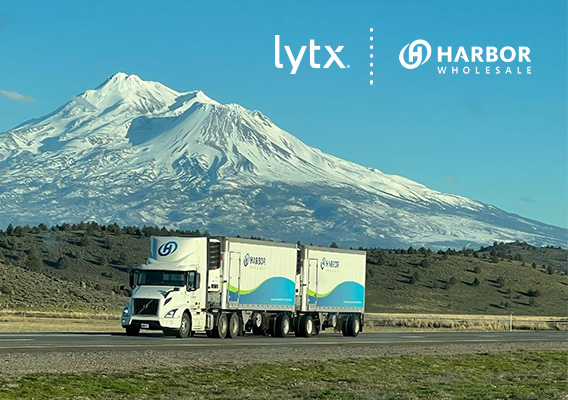Harbor Wholesale: Enhancing Food Transportation Safety with Video Telematics

When it comes to food logistics, safe, efficient, and technology-driven transportation practices can be the deciding factor between a seamless delivery and a costly loss. With 13% of global food loss occurring within the supply chain before products even reach consumers, according to the Food and Agriculture Organization of the United Nations, every mile matters.
The stakes are especially high for perishable goods, where even minor delays can lead to spoilage and financial losses. Restaurant and retail partners count on food distributors to maintain strict standards around product handling, delivery timelines, and temperature control. The margin for error is slim—and that’s where video telematics is stepping in.
Creating a Culture Where Safety Comes First
Technology can do a lot, but true safety starts with people. Fleets that prioritize safety understand that tech tools are most effective when paired with ongoing training and a company-wide commitment. That’s why all food distribution companies are doubling down on this, holding regular safety meetings on everything from defensive driving to warehouse best practices.
Take Harbor Wholesale, a leading food distributor that has embedded safety into every level of its operation. With Lytx® video telematics, Harbor has gained powerful insights into driving behavior, enabling real-time coaching and fostering more engaged conversations between managers and drivers. But their approach doesn’t stop at the cab. The company reinforces safety with hands-on annual training sessions, warehouse protocols, and guidance around slips, fewer incidents, stronger compliance, and a more resilient team. Their goal is to continually build stronger, safer processes and team members across the board.
Using Video Telematics as a Safety Net
The return-to-office trend has pushed more traffic onto already congested roads, bringing more distractions, more risk, and a greater urgency for fleets. Video telematics offers an edge, giving companies real-time visibility into fleet operations with both cab-facing and road-facing views.
With smart video powered by machine vision and AI (MV+AI), fleet managers can quickly identify risky behaviors, coach in the moment, and help prevent small issues from becoming major incidents. This proactive approach not only enhances safety but also helps to ensure on-time deliveries, reducing the likelihood of spoilage or cargo loss. At Lytx, we’ve seen food distributors like Harbor Wholesale successfully use our MV+AI technology to do just that, leveraging advanced tools to create a culture of continuous improvement and accountability.
Navigating Weather and the Unexpected
Not all risks stem from behind the wheel. Weather remains a major wildcard in food transport, with one in five crashes in the U.S. tied to weather conditions. And when you’re hauling perishables, delays aren’t just inconvenient, they’re costly.
That’s why fleets are increasingly turning to advanced video telematics with localized weather alerts and real-time rerouting capabilities. These tools provide a critical edge in unpredictable conditions. During a recent snow and ice storm in Washington, Harbor Wholesale used these tools to map vehicle locations against live radar data, temperature changes, wind gusts, and road conditions. The result: smarter route decisions, safer drivers, and uninterrupted service.
Even in the summer, weather can pose a risk. High temperatures can threaten the integrity of cold cargo, which is why practices like pre-cooling trailers—another Harbor Wholesale strategy—are becoming more common across food fleets.
Looking Ahead: Safety, Wellness, and Innovation
As distractions and driver fatigue remain persistent threats, fleets are leaning on AI-driven insights to proactively spot emerging risks—sometimes even before the driver is aware. These predictive capabilities can empower fleets to take action before incidents occur. When paired with wellness programs that recognize drivers as “industrial athletes,” companies can take a more holistic approach to safety.
Harbor Wholesale, like many forward-looking companies, is investing in both safety and technology in order to help protect their employees on the road and in the warehouse.
By integrating AI, real-time coaching, and proactive wellness initiatives, they’re setting a new standard for safety in food logistics.
Driving Toward the Future
In food distribution, safety is no longer just about compliance, it’s about building trust. Trust in reliable deliveries, in driver well-being, and in a company’s commitment to excellence. By combining advanced video telematics with a people-first approach, companies can deliver more than just food—they can deliver a safety-driven culture based on confidence and results.
